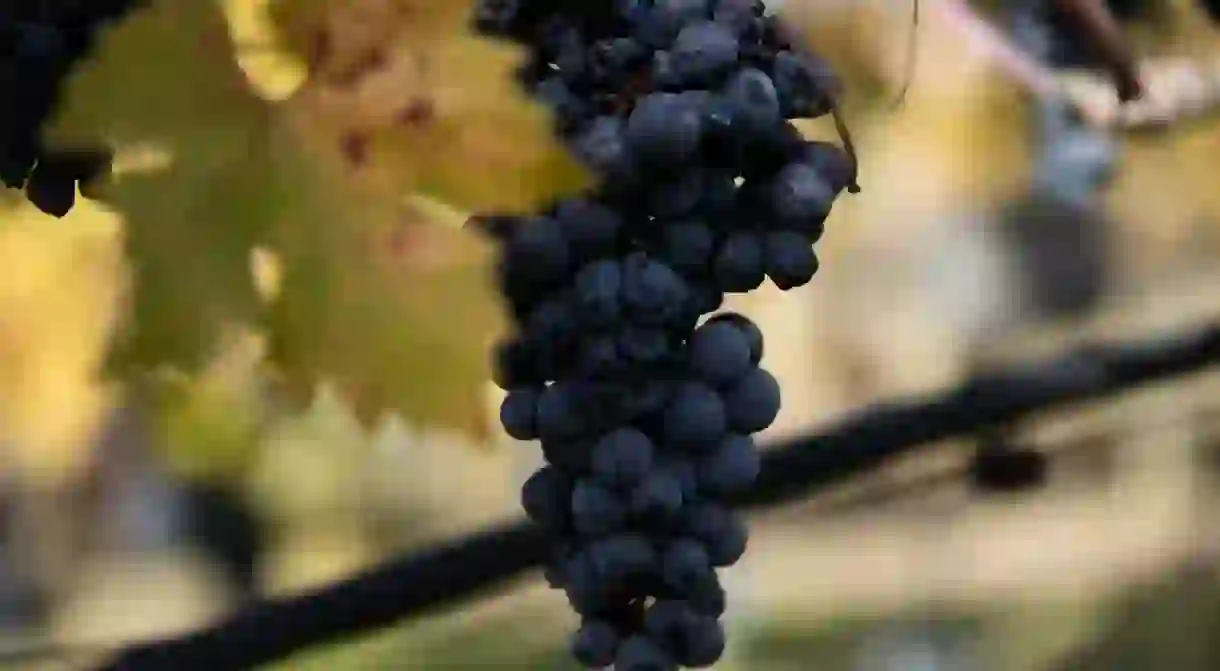A Record Heat Wave Has Turned Napa's Wine Grapes Into Raisins

Thanks to 100+ degree temperatures in the Bay Area over Labor Day weekend, this year’s wine harvest is looking questionable for many producers.
A record-level heat wave descended upon Northern California during the first weekend in September. Beachgoers may have been happy, but it sent many of the region’s notable vineyards scrambling to try and save their grapes.
Searing temperatures of over 100 degrees dehydrated vines and shriveled grapes in the state’s notable wine-growing regions of Napa and Sonoma, turning what was expected to be a “promising and average-yielding vintage” into one whose outcome is looking pretty questionable.
“The extensiveness of the dehydration was something I’ve never seen before,” Jasmine Hirsch, of Hirsch Vineyards in Cazadero, told the San Francisco Chronicle. “It’s exceeded 104 degrees here before, but never during harvest.”
Torrid temperatures shrivel California wine grapes to raisins https://t.co/wEjJlYQq3g pic.twitter.com/iVmgET8rzM
— SFGate (@SFGate) September 9, 2017
The grapes are particularly susceptible so close to harvest time, as many producers stop irrigating their crops for fear of affecting the fruit’s flavor, says the Chronicle.
“I’ve been making wine for 34 years, and I don’t think Napa’s ever seen this excessive heat at this stage of ripeness,” said Pam Starr, co-owner of Crocker & Starr Wines in St. Helena, told the Chronicle. Temperatures in her area exceeded 110 degrees three days in a row. Starr estimates that some parts of her vineyard lost up to 50 percent of the crop.
Some producers had harvested their grapes already, particularly for their white wines and lighter red varietals like Pinot Noir, and winemakers whose grapes were on the edge of ripeness scrambled to harvest them before they could be too affected by the heat wave, reports the Chronicle. But Cabernet Sauvignon, a red wine for which the state is known, is rarely harvested before mid-September, and grapes that weren’t yet ripe enough to be picked are largely now raisins.
So what will happen to the shriveled-on-the-vine grapes? Questionable ones will likely be used in cheaper wine blends, and the rest may be destined for Raisin Bran. “Sorting and capturing delicious fruit—that’s the goal,” Starr said, “and letting the raisins go into cereal boxes.”













